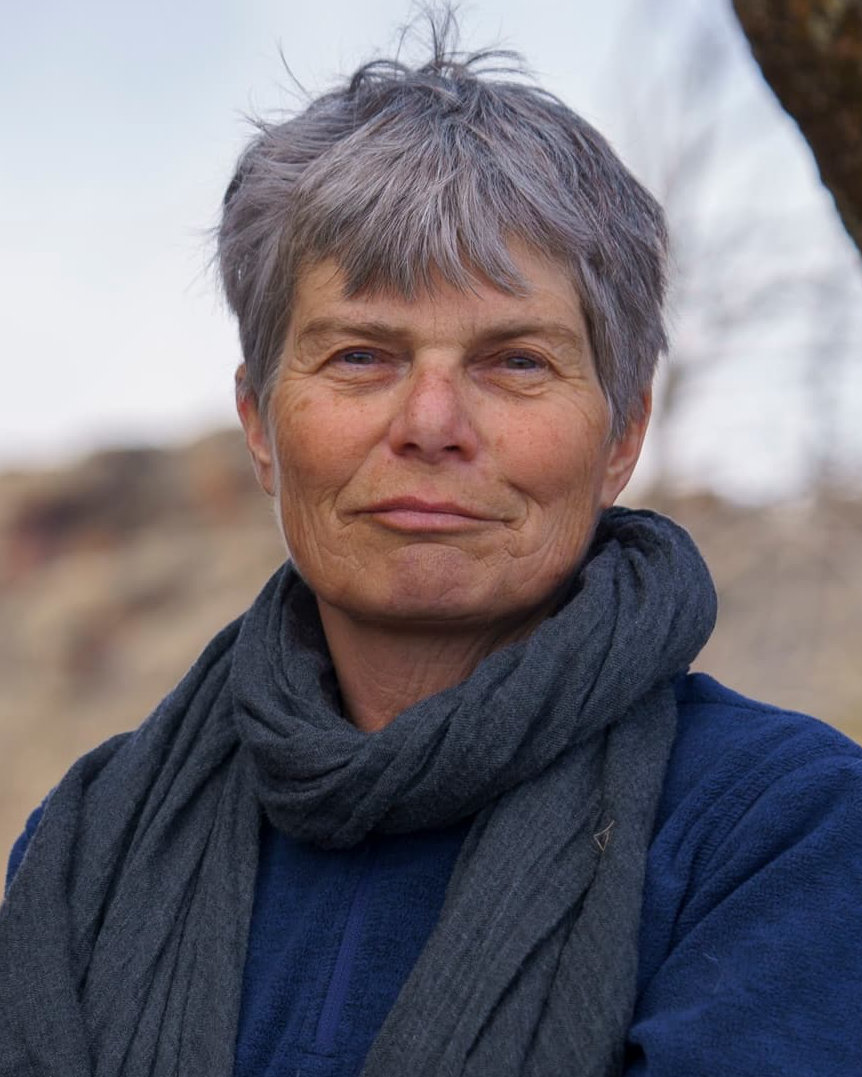Merav Ben-David
Merav Ben-David was born and raised on a small family farm, where she learned to ride on 2 old family mares. She was in high school when her dad passed away, leaving her to maintain and manage the farm. It was the first of many life events that taught Merav how to make informed decisions and plan for the future.
As a small child, Merav had cared for nestlings, hare kits, and other abandoned wild animals that she and her neighbors found in the fields. It was at that young age that she knew she wanted to be a wildlife biologist. So after her military service (which included the Lebanon war), Merav decided to study biology, receiving her BSc in 1984 and her MSc in Zoology in 1988 from Tel Aviv University.
After working as a wildlife tour guide in Kenya for 5 years and volunteering on several research projects there, she relocated to the US and received a PhD in Wildlife Management from the University of Alaska Fairbanks (1996). In Alaska, Merav learned to ski, skijor, fly fish, and hunt. Apart from fly fishing, she still does all those things.
In 2000, Merav accepted a position at the University of Wyoming as an assistant professor, and she has called Laramie home ever since. Merav became a U.S. citizen in 2009, and she has been a full professor since 2010.
Merav is a wildlife ecologist who has studied the various effects of invasive species, logging, pollution, and climate change on animals ranging from polar bears and mountain lions to river otters and chipmunks for over 30 years. Her research projects have sent her across the globe, from Kenya to Argentina, from Tasmania to Austria, from California to Alaska and, of course, all across Wyoming.
In late fall of 2009, Merav was sitting for an interview with National Geographic on the bow of a Coast Guard Icebreaker in the Arctic Ocean. According to NASA’s predictions, the ship was supposed to be breaking solid ice. Instead, it was motoring at full speed: at a time the sea was supposed to be frozen, there was no ice to be seen. The models predicting the progression of climate change had clearly been too optimistic.
When Merav returned from that expedition, Wyoming’s forests were being decimated by the worst bark beetle infestation in Rocky Mountain history. Climate change had left Wyoming’s winters warmer than ever, and the beetles’ larvae didn’t die, causing the devastating eruption. In some parts of the state, fully 90 percent of the forest died.
But climate change poses another, even bigger, threat to Wyoming: as the world transitions to alternative energy sources, people’s reliance on fossil fuels is rapidly waning, and with it, more than half of Wyoming’s economy. Merav believes that we must preempt that fate by making smart investments and diversifying Wyoming’s economy today.
Merav never imagined she’d be interested in politics. Most of her career has been devoted to research and training scientists and conservationists, and lending her voice to climate advocacy efforts. But scientists, at their core, are problem solvers, and the problems Wyoming faces today call for a bold vision, informed by facts, with a long term view — one that a scientist like Merav is uniquely poised to lead.

